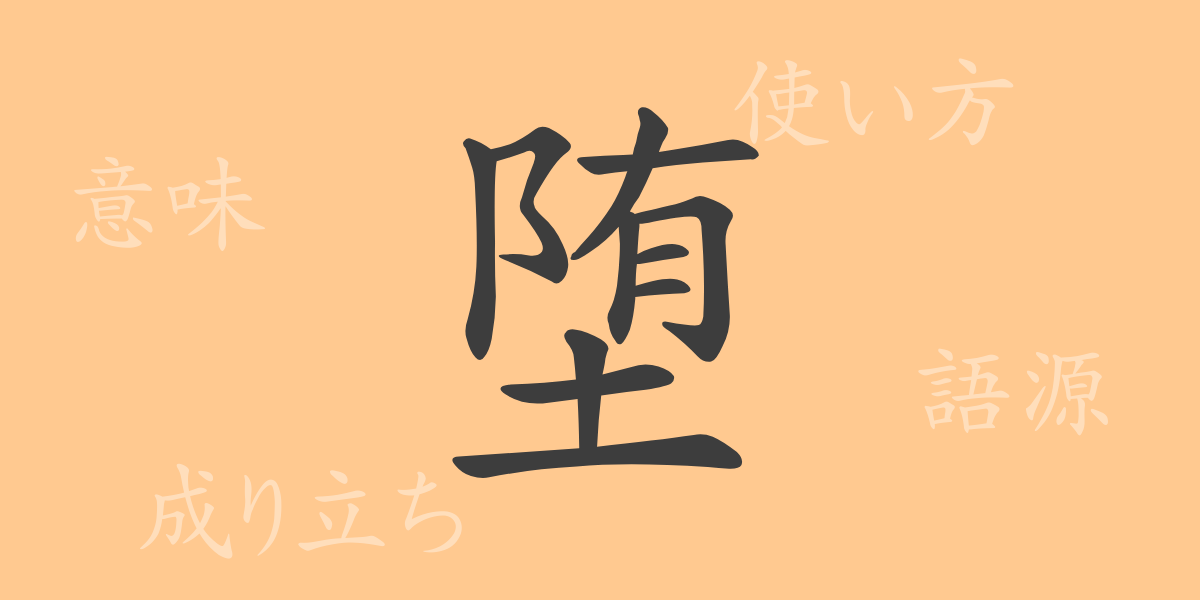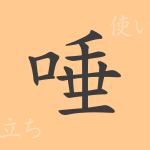Japanese language is rich with Kanji characters adept at expressing emotions and philosophies. “堕” (da) is one such character, laden with deep meaning in both its form and sound. This article explores the origin of “堕”, its contemporary usage examples, and delves into its complex background.
Origin of “堕” (da)
The Kanji “堕” originates from ancient China, originally meaning to fall from a high place. It combines the radical for “earth” with the form resembling “隋”, originally depicting collapsing soil, hence evolving to mean falling from an original position, or moral decline.
Meaning and Usage of “堕” (da)
In modern Japanese, “堕” primarily appears in the term “堕落” (daraku), denoting moral or spiritual degradation. It is also used in medical terminology like “堕胎” (datai), meaning abortion. Additionally, it finds use in metaphorical expressions and literary contexts.
Readings, Stroke Count, and Radical of “堕” (da)
The Kanji “堕” in Japanese adheres to specific readings and writing rules.
- Readings: On’yomi ‘ダ’ (da), Kun’yomi ‘おちる’ (ochiru), ‘くずす’ (kuzusu), ‘くずれる’ (kuzureru)
- Stroke Count: Consists of 12 strokes in total.
- Radical: Radical is “earth” (tsuchi), used in Kanji related to soil or ground.
Idioms and Proverbs Using “堕” (da) and Their Meanings
The Kanji “堕” appears in several idioms, proverbs, and expressions. Here are some examples:
- 堕落 (daraku): Moral or spiritual decline.
- 堕胎 (datai): Abortion.
- 自堕落 (jidaraku): Indulging in a life of laziness and self-indulgence.
- 堕天使 (datenshi): Fallen angel, metaphorically referring to someone who has lost divine grace or fallen from grace.
Conclusion on “堕” (da)
The meaning encapsulated in a single Kanji character spans various contexts of usage. “堕” in Japanese carries significant cultural weight, representing moral degradation, physical descent, and metaphorical meanings. This article deepens understanding of the historical background and contemporary usage of “堕”.

























